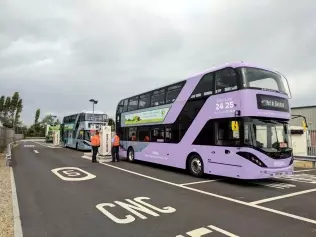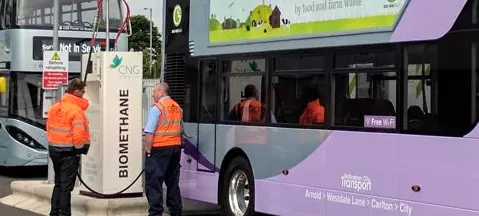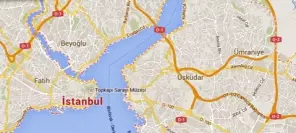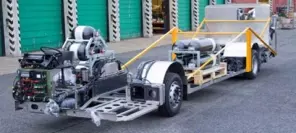- Main page
- Search
- Up to date
- Products
- Technology
- Vehicles
- Video
- Conversion Payback Simulator
Port Injection - Conversion Payback Simulator
Direct Injection - Conversion Payback Simulator
Diesel - Newsletter
Biomethane doubledeckers out in Nottingham
 loading results...
loading results... © Nottingham City TransportCities would be much friendlier places to live if all buses were fueled with methane, in whatever form or from whatever source
© Nottingham City TransportCities would be much friendlier places to live if all buses were fueled with methane, in whatever form or from whatever sourceTogether with the Nottingham City Council and companies Scania, Alexander Dennis and Roadgas (refueling station solutions provider) and with funding provided by OLEV (Office of Low Emission Vehicles), NCT has deployed 53 doubledecker city buses running on biomethane. According to the operator, the vehicles emit a staggering 84% less greenhouse gasses than their diesel-powered counterparts.
Not only does biomethane offer all the benefits of fossil-sourced natural gas, it's also produced from biomass, which makes it nearly carbon-neutral, all the while helping dispose of household waste and sewage. This kind of material requires storing and processing, which leads to formation of methane anyway. If it escapes freely into the atmosphere, it becomes a greenhouse gas much more powerful than CO2, so using it as a fuel is the lesser evil after all. Especially given that NCT's buses emit no particulate matter (soot) or unburnt hydrocarbons, unlike diesels.
As far as fuel supplies are concerned, Nottingham City Transport cooperates with Roadgas, also based in the same city. The company also designed and built the biogas refueling site for NCT. The fuel itself is manufactured in a process involving anaerobic fermentation. However, Roadgas doesn't supply pure biomethane to NCT. Instead, it feeds it into the grid, thus offsetting NCT's buses' real-life emissions. Natural gas from the grid is compressed and stored at the station and refueling takes place at night.
Unlike diesel, natural gas does not require transporting by trucks. This could be an advantage or a disadvantage, depending on one's point of view (trucks can deliver fuel practically anywhere, as long as there are roads in the area, while CNG stations must be built in proximity of pipelines), but eliminating road transport from the supply equation definitely helps further reduce emissions of harmful gasses and compounds. Way to go, Nottingham!







